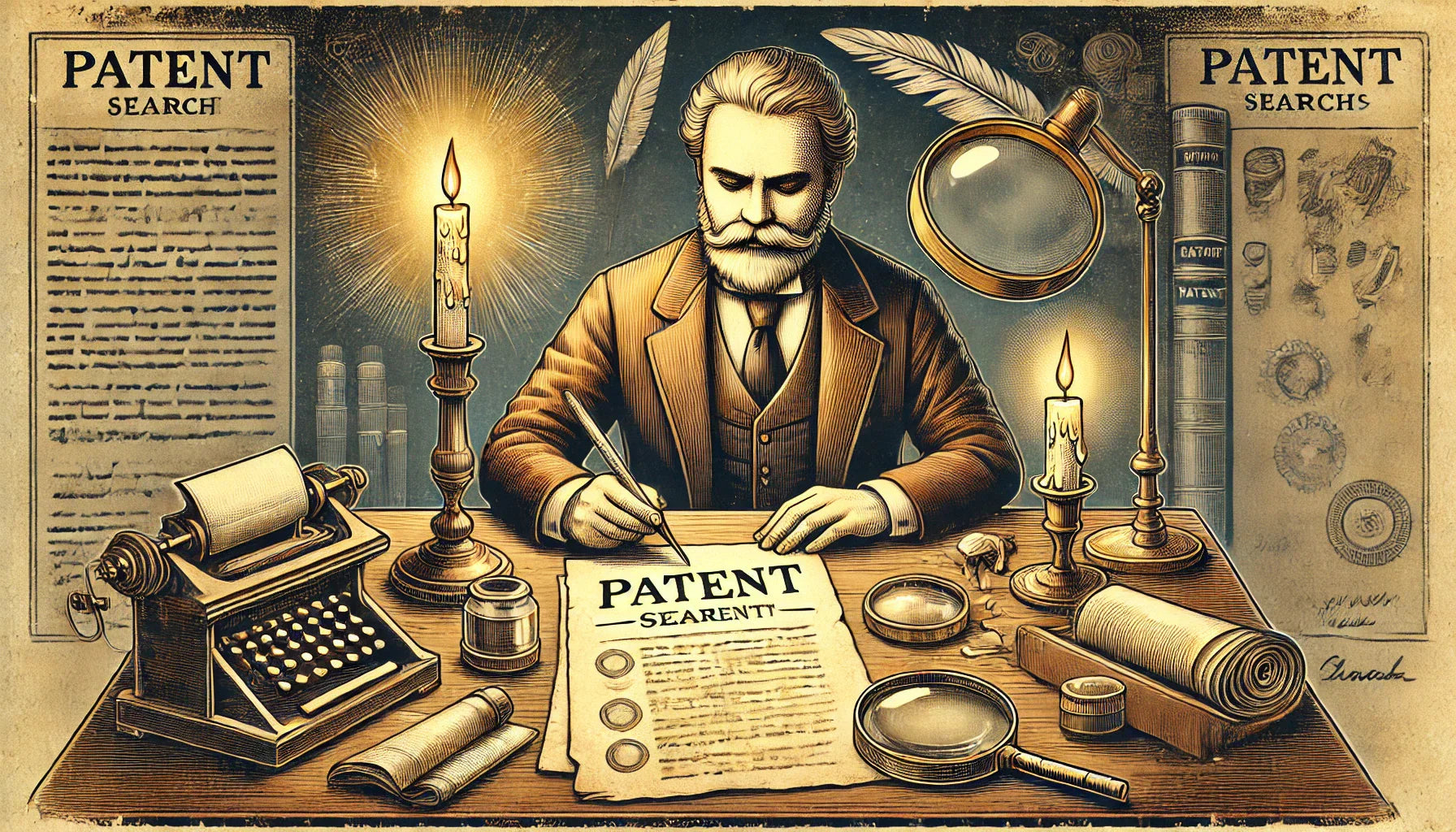Quick Summary
Doing your own patent or trademark search might seem like a cost-effective way to ensure your startup’s innovations and branding are protected. However, the accuracy of your search depends on your experience and ability to analyze results. Many startups make critical mistakes, assuming they’re in the clear when, in reality, they might be at legal risk.

Common Questions & Answers
1. Can I trust my own patent search results?
Not necessarily. Patent databases are complex, and similar inventions might be described differently, making them hard to find without experience.
2. Are trademark searches easier than patent searches?
Not always. Trademarks consider “likelihood of confusion,” which means a similar-looking or sounding mark could still be an issue.
3. What happens if I miss a conflicting patent or trademark?
You could face legal action, including cease-and-desist letters, lawsuits, or even the loss of your ability to use your brand or invention.
4. Should I hire a professional to do my search?
Yes, a patent attorney or trademark specialist can help identify risks that you might overlook, saving you from costly mistakes.
Step-by-Step Guide to a More Reliable Search
- Use Multiple Databases – USPTO, WIPO, and Google Patents are great starting points but may not capture everything.
- Search Variations – Try synonyms, technical terms, and alternative spellings to cover a broad range of possibilities.
- Analyze Beyond Exact Matches – Look at patents and trademarks with similar functions or market confusion risks.
- Consult Experts – A professional search firm or attorney can spot issues you might miss.
- Stay Updated – Even if you’re clear now, new filings can change things. Keep an eye on updates.

Historical Context
Trademark and patent disputes have shaped industries for centuries. One famous example is the battle between Alexander Graham Bell and Elisha Gray over the telephone patent in the 1870s. Both filed patents around the same time, leading to a major legal battle that ultimately favored Bell. More recently, Apple and Samsung have fought over smartphone design patents, costing billions in litigation. These cases highlight how even well-documented searches can lead to disputes.
Business Competition Examples
- Nike vs. Adidas – Adidas sued Nike over patented shoe technology, arguing it was too similar to their own.
- Monster Energy vs. Small Businesses – Monster aggressively protects its trademark, often going after businesses using “Monster” in any capacity.
- Google vs. Oracle – Google faced years of legal battles over Java-related patents in Android, showing how tech patents can be minefields.
- McDonald’s vs. Supermac’s – A trademark battle over “Big Mac” usage in Europe led to surprising rulings in favor of smaller competitors.

Discussion Section
DIY patent and trademark searches might seem sufficient, but they carry significant risks. Legal professionals undergo years of training to interpret search results correctly, identify “confusingly similar” trademarks, and analyze prior art in patents. Startups often don’t realize that minor variations in wording or design don’t necessarily mean they’re in the clear. Moreover, a search today might not protect you from future applications that emerge. The cost of an inadequate search can be devastating, from expensive litigation to rebranding efforts that set businesses back years.

The Debate
DIY Patent Searches Are Enough
Some argue that free resources like Google Patents and the USPTO database provide sufficient tools to perform a reasonable patent or trademark search. With enough effort, startups can navigate these databases effectively and avoid infringement issues without incurring legal fees.
Professional Searches Are Essential
On the other hand, experts warn that patent and trademark laws are nuanced, and a professional’s trained eye can identify risks that a DIY searcher may miss. Even if no exact match appears, legal arguments over “substantial similarity” or “confusingly similar” trademarks can still arise.

Key Takeaways
- A DIY search is only as good as your ability to interpret the results.
- Patents and trademarks don’t need to be identical to cause legal issues.
- Professional searches uncover risks that might not be obvious to non-experts.
- Regularly monitoring new filings is crucial.
- Legal disputes can be costly and time-consuming, making early due diligence essential.

Potential Business Hazards
- Legal Battles – Failing to identify prior patents or trademarks can lead to lawsuits.
- Rebranding Costs – A trademark conflict could force a costly name change.
- Lost Market Exclusivity – A missed patent can mean losing competitive advantage.
- Investor Concerns – Poor IP due diligence can scare off potential investors.
Myths & Misconceptions
- “If I don’t find anything, I’m safe.” – Some conflicts don’t show up in basic searches.
- “Similar but different is fine.” – If your brand or invention is too close, you may still face legal trouble.
- “Only big companies need to worry about this.” – Small startups are frequently targeted for IP disputes.
- “Google is enough for a search.” – Comprehensive searches require multiple databases and legal expertise.

Book & Podcast Recommendations
- Patent Searching Made Easy by David Hitchcock (https://www.nolo.com/products/patent-searching-made-easy-pat.html)
- Trademark: Legal Care for Your Business & Product Name by Stephen Elias (https://www.nolo.com/products/trademark-ntrm.html)
- IP Fridays Podcast (https://www.ipfridays.com/)
- The Inventors Launchpad Network (https://www.inventorslaunchpad.com/)
Legal Cases
- Apple vs. Samsung – Patent disputes over smartphone designs. (https://www.reuters.com/legal/litigation/apple-vs-samsung-legal-battle-2021-12-01/)
- USPTO vs. Booking.com – A case defining whether generic names can be trademarked. (https://www.supremecourt.gov/opinions/19pdf/19-46_8n59.pdf)
- Monster Energy vs. Beastie Boys – A dispute over brand confusion. (https://casetext.com/case/beastie-boys-v-monster-energy-co-2)
- Tesla vs. Rivian – A legal battle over stolen trade secrets. (https://www.cnbc.com/2021/07/26/tesla-lawsuit-rivian.html)

Expert Invitation
Have thoughts or experiences with patent and trademark searches? Share your insights in the comments or join the discussion at InventiveUnicorn.com!

Wrap-Up Conclusion
A thorough patent or trademark search isn’t just about typing keywords into a database—it’s about understanding the nuances of intellectual property law. A DIY approach can be risky, and overlooking just one conflicting mark or prior patent can lead to costly consequences. When in doubt, consulting an expert can save you time, money, and legal headaches down the road.












